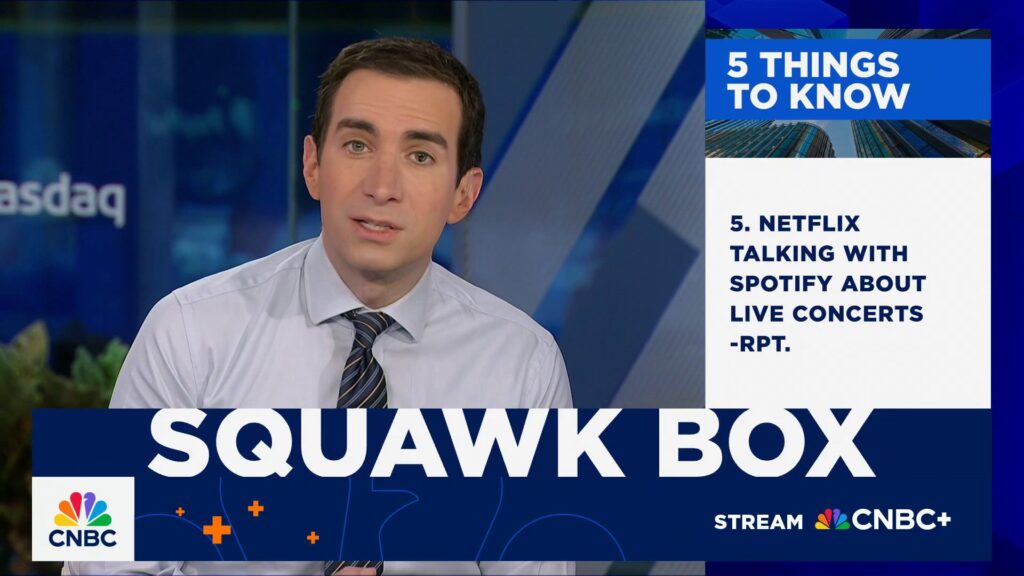As the world turns its attention to the latest developments on July 2, 2025, CNBC’s Andrew Ross Sorkin highlights five critical issues that could shape global markets and political landscapes. These updates come at a time when economic uncertainties and geopolitical tensions are at an all-time high.
Global Economic Outlook: A Mixed Bag
The global economy is witnessing a period of fluctuating growth rates, with some regions showing signs of recovery while others remain stagnant. The International Monetary Fund (IMF) recently revised its global growth forecast, citing persistent inflationary pressures and supply chain disruptions as significant challenges.
According to the IMF, global growth is expected to slow to 3.2% in 2025, down from an earlier estimate of 3.5%. This adjustment reflects ongoing economic uncertainties, particularly in emerging markets.
Impact of Inflation and Supply Chain Issues
Inflation remains a pressing concern for policymakers worldwide. Central banks are grappling with the challenge of balancing interest rate hikes to curb inflation without stifling economic growth. Meanwhile, supply chain bottlenecks continue to disrupt the flow of goods, exacerbating price pressures.
Economists suggest that these issues could persist well into 2026, with potential ramifications for consumer spending and business investment.
Geopolitical Tensions: A Volatile Landscape
Geopolitical tensions have escalated in recent months, with several flashpoints demanding international attention. Notably, the ongoing conflict in Eastern Europe remains a focal point, as diplomatic efforts to broker peace have yet to yield significant results.
Meanwhile, tensions in the South China Sea continue to simmer, with regional powers asserting territorial claims that threaten to destabilize the area. The international community is closely monitoring these developments, as any escalation could have far-reaching consequences.
Diplomatic Efforts and Strategic Alliances
In response to these challenges, nations are strengthening strategic alliances and exploring diplomatic avenues to mitigate risks. The recent G7 summit underscored the importance of multilateral cooperation in addressing global security concerns.
Experts emphasize the need for sustained dialogue and confidence-building measures to prevent further deterioration of international relations.
Technological Innovations: Driving Change
Amidst these challenges, technological advancements continue to drive change across industries. Breakthroughs in artificial intelligence, renewable energy, and biotechnology are reshaping the future, offering new opportunities for growth and development.
According to a report by the World Economic Forum, investment in clean energy technologies is projected to reach $1.5 trillion by 2030, highlighting the shift towards sustainable solutions.
AI and Automation: Transforming Industries
Artificial intelligence and automation are transforming industries, enhancing efficiency and productivity. However, these advancements also pose challenges, particularly in terms of workforce displacement and ethical considerations.
Industry leaders are calling for comprehensive policies to address these issues, ensuring that technological progress benefits society as a whole.
Public Health: Preparing for Future Challenges
The global health landscape remains a priority, with nations focusing on strengthening healthcare systems to better respond to future pandemics. Lessons learned from the COVID-19 pandemic continue to inform public health strategies.
Efforts to enhance vaccine distribution and bolster healthcare infrastructure are underway, as experts warn of potential health threats on the horizon.
Vaccine Equity and Global Cooperation
Vaccine equity remains a critical issue, with calls for increased international cooperation to ensure equitable access to vaccines worldwide. The World Health Organization (WHO) has emphasized the importance of a coordinated response to prevent future health crises.
As the world navigates these complex challenges, the developments on July 2, 2025, offer a glimpse into the evolving landscape of global affairs. Stakeholders across sectors are urged to remain vigilant and proactive in addressing these pressing issues.
